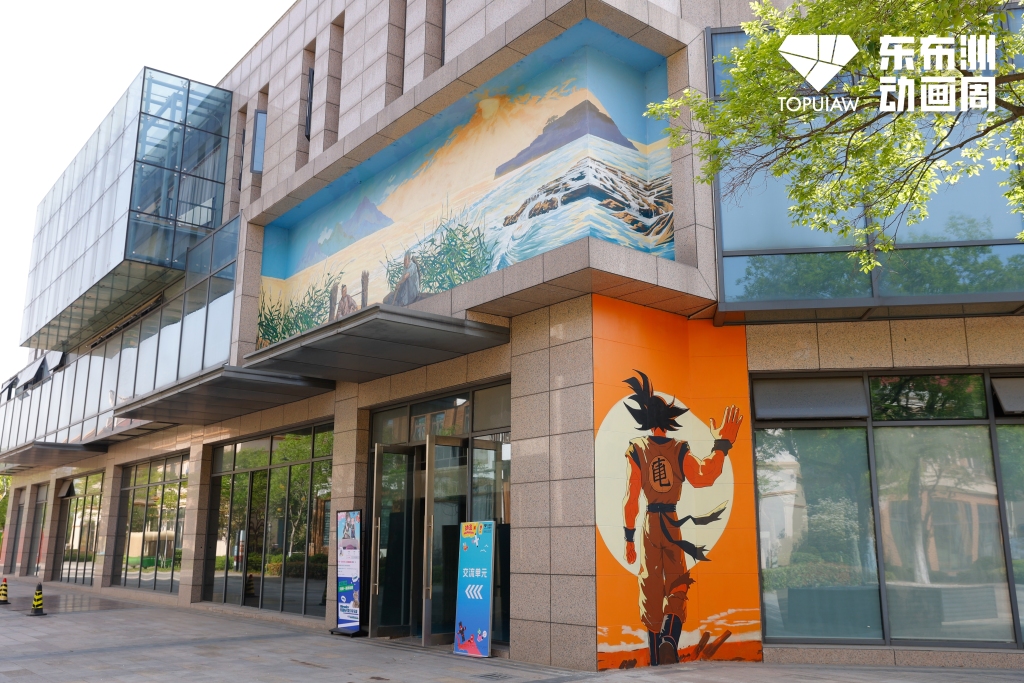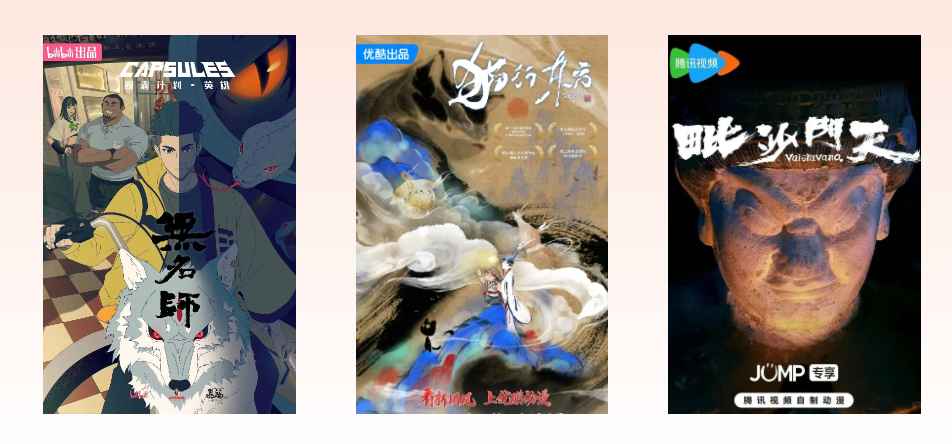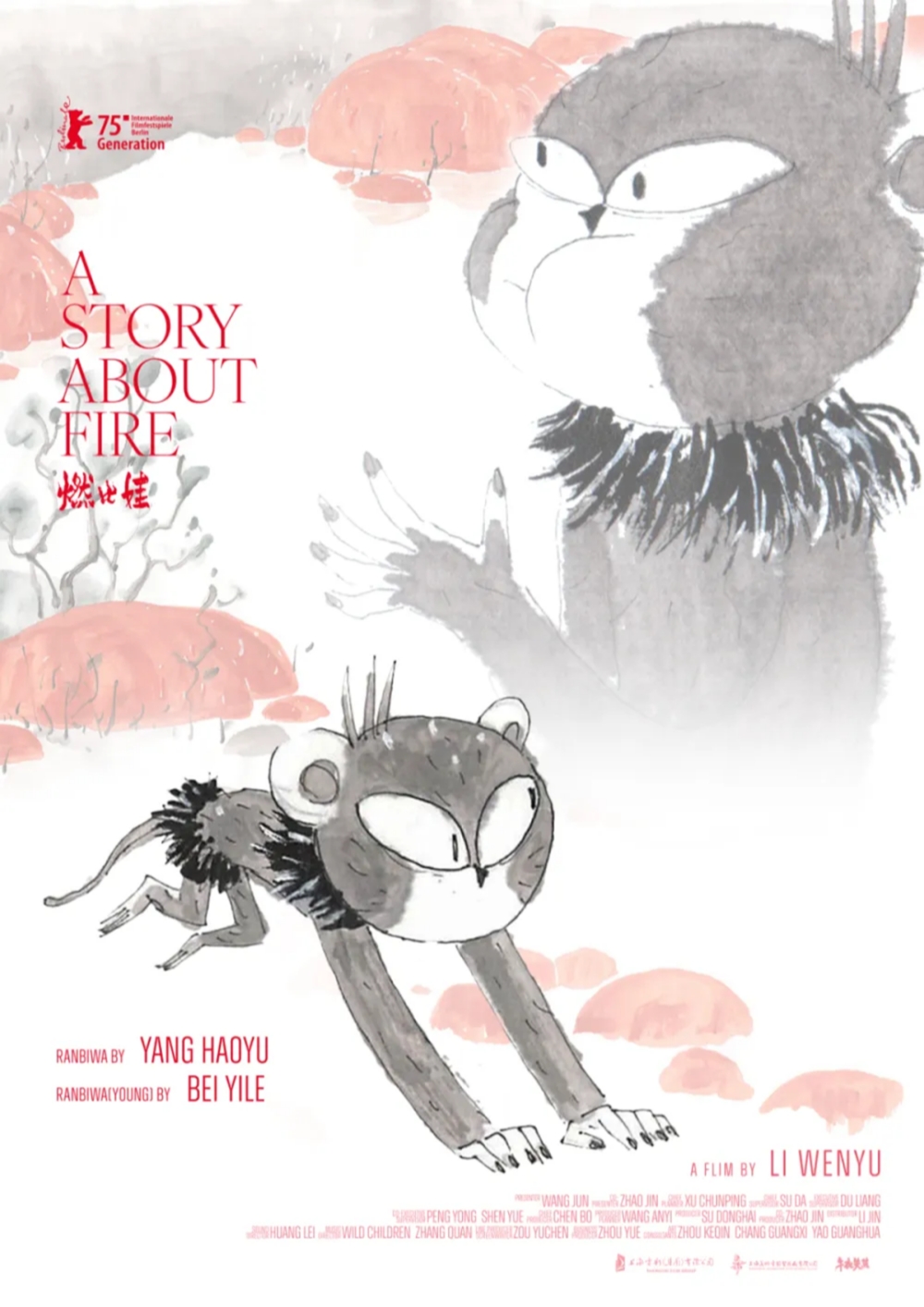
As an important annual event in the domestic animation industry, the 6th Dongbuzhou Animation Week closed on April 20 in Haimen Linjiang New District, Nantong City, Jiangsu Province.
Dongbuzhou Animation Week has entered its sixth year. Every year, the most influential and outstanding animators in the industry gather here to give the latest industry discussions, which is a professional indicator of the development of the animation industry. This year, more than 1,000 domestic and foreign animation industry elites gathered in Linjiang, and excellent animation short films from many countries around the world were exchanged and screened here for three days.

Dongbuzhou Animation Week event site
The theme of this year’s Animation Week is “Animation ×?” “×” is the multiplication sign, a signal that connects with everything, a mechanism for animation to talk to others, and the courage to take bigger steps to iterate and innovate.
Animation is not just a technical industry, it is also a form of expression
After the Spring Festival, the box office miracle of "Nezha 2" has made animation the focus again, and it has also inspired industry practitioners to have more new thoughts. "Black Myth: Wukong" came out of nowhere, the application scenarios of artificial intelligence continue to expand, and "Nezha 2" has set new box office records. In just half a year, the animation industry has been a hot topic and the changes it faces seem to be earth-shaking.
During several exchange activities on the opening day, this animation also became an example for many guests to express their opinions. However, animation is not only about blockbuster movies, but also about more excellent works and creators who are making their own efforts. Animation is not only about movies, but also about many types of content such as dramas and short films, as well as peripheral products, cultural and tourism experiences, etc. Animation is not only an industry, nor is it only a technology. It is also a "way of expression" and a "way of communicating with people." This Dongfuzhou Animation Week attempts to find more possibilities for animation.

The three curators of Dongbuzhou, Pi San, Chen Liaoyu and Yu Zhou
From the theme of the forum, we can see that this year in Dongbuzhou, animators are more concerned about the "outside world" than ever before, whether it is the overseas path of animation itself and the various problems it will encounter, or the close and subtle relationship between animation and cultural tourism, as well as the cross-border linkage between animation and contemporary art and live-action movies. These are all changes that animators hope to "reshape the flesh" in their thinking.
At present, the national development of the cultural tourism industry, the pervasiveness of trendy cultural creation, and the continuous iteration and upgrading of games have given animators many new ideas. "The development of animation in recent years has become ubiquitous. The increasingly digital and virtual world has given animation a huge space for imagination and development. We get together to think, talk, and try, how might animation develop? This is the theme of this year: Animation ×?" said Yu Zhou, one of the founders of Dongbuzhou and president of Light Chaser Animation.
The "?" in this theme can be music, movies, games, education, trendy toys, technology, cultural and creative industries, tourism... As technology continues to iterate, in this cross-border content car, some industries are already speeding, some industries are facing a reshuffle, some industries are bearing the impact of AI, and some industries have broken through the shackles of tradition.
Chen Liaoyu, the chief director of "Chinese Tales", expressed his feelings about these changes from the perspective of an animator, "New technologies and new industrial situations bring us pressure, but they are also external forces that break our self-limitations. We don't have to worry about whether the abilities we have painstakingly accumulated will be replaced by new technologies. If they are destined to be replaced, it is better to be replaced as soon as possible. The day they are replaced is the day of liberation. If all the jobs in the history of the world had not been replaced one by one, what would the world be like today? The world is being reshaped, and so is animation."

Nezha graffiti in Dongbuzhou Animation Town
Director Pi San, who is also a curator, did not shy away from the difficulties the industry is facing in his curator’s statement for this year’s album. “People are feeling pressure and difficulties they haven’t felt for a long time. Platforms are starting to shrink, capital is becoming weak, and some animation companies are starting to lay off employees or even go bankrupt.” But Pi San also pointed out, “If you have worked in the animation industry for 20 to 30 years, these ups and downs are not uncommon. The interweaving of these two voices, seemingly a dilemma, actually gives me a more real feeling: the only thing that remains unchanged is time, and the only thing that can change is the boundaries of thought.”
When exporting animations overseas, there is no need to fear “cultural discount”
The export of animation content was a hot topic at this year's Dongbuzhou. Compared with other cultural content, animation has more world language attributes and can empathize with people of different nationalities and cultures. Two years ago, "Chang'an 30,000 Miles" went out of the circle and went overseas with Tang poetry culture, showing the charm of Chinese poetry and Chinese culture to the world. This year, "Nezha 2" broke the circle and broke the wall with mythological images, presenting the height of Chinese creativity and Chinese aesthetics to the world.
The east wind of cultural exports is blowing, but it is undeniable that the audience groups faced by many works going overseas are still very narrow. Due to the lack of knowledge about Chinese works, overseas companies have high communication and trust costs and low efficiency.
This year's Animation Week also invited well-known animation directors, producers, and practitioners from Japan, South Korea, Canada, Spain and other countries to discuss the creative difficulties, market differences, and operational methods encountered in cultural exports, and at the same time help more domestic animation practitioners find methods and resources at the beginning of creation, so that they can integrate into the current market from a global perspective.

Animators discuss the "cultural discount" in the process of going overseas
At the forum, animators from various countries focused on discussing the strategies and challenges faced by Chinese cultural products going overseas, emphasizing the clarity of content types and the necessity of international adjustments, balancing art and commerce, and paying attention to the localization of works and cultural differences.
At the "Global Trends of Animation IP: How to Deal with Cultural Discounts?" exchange meeting, important guests such as Chen Liaoyu, the chief director of "Chinese Fantasy", and Jason Meek, the former producer of WDI Shanghai Disney, made in-depth analyses of the "cultural discount" problem faced by Chinese animation IP in entering the international market. They pointed out that efforts should be made in three aspects: optimizing story strategies, polishing audio-visual styles, and formulating precise promotion plans to break through the barriers of cultural differences and promote Chinese animation IP to the world stage. Chen Liaoyu said that in terms of grasping the "degree" of Chinese culture in the process of going overseas, "you should use your culture, but don't show off."
Animation × Culture and Tourism, cross-border talents are urgently needed
With the iteration of technology and the integration of creativity, the era of "everything can be animated" has arrived. As offline businesses pay more and more attention to the thinking of cultural tourism, the combination of "animation" and "cultural tourism" has given rise to more imagination space for the two industries that can "frame" many new things.

Animators and cultural tourism professionals discuss the relationship between animation and cultural tourism
Xu Jianjun, founder of platforms such as Let's Start and Jie Su, talked about his observations on the current business formats, "All businesses are becoming more and more theme park-like. If offline businesses cannot provide me with emotional value similar to that of theme parks, consumers may choose to shop online." The IP, plot, and image behind the theme park are all what animators are good at.
Not all animation IPs aim to become Disney or Universal, and not every city has naturally fascinating scenery. At the exchange meeting, from Japan's "Conan Town" to Tangshan's "Shadow Puppet Town", the new life that animation can bring to small places has inspired many practitioners.
Wang Yunfei, a director who has produced animations such as the Guibao series and Journey to the West: The Demon King Reborn, is one of the earliest animators to enter the cultural tourism industry. He believes that "the regrets in animated films can be redeemed through cultural tourism projects." The reason for this is that animators often spend several years of hard work on their works, which only have a short release period of one month in theaters, and theaters are highly competitive. If there is no chance of becoming a hit, the film may only face a bleak ending of being taken off the screen in just one or two weeks. "The content that I worked so hard to create has very little chance of survival in such a market. So I wonder if I can achieve a kind of 'unlimited scheduling' through cultural tourism occasions."
"Today, all the big social platforms do not belong to the cultural tourism industry. Whether it is Douyin or Xiaohongshu, none of them claims to be a cultural tourism platform. They are just social tools. There are relatively few people in our industry who can apply it, understand it, and know its traffic logic. There are also few people who really think about this issue." Wang Xu, secretary-general of the SMART Resort Industry Expert Committee, pointed out that he once had a cognitive bias towards the animation industry. "I think people who do animation are just a group of technical workers, which is wrong. There should be a lot of talents from the entire upstream and downstream of the industry chain. As a cultural tourism person, I strongly urge animators to cross borders."
Wang Yunfei remembers that he attended the Shanghai International Film Festival one year and accidentally replaced the puppet wearing Guibao to walk the red carpet. The puppet costume was hot and bulky, but when he passed by the people backstage in a bright and cute cartoon image, no matter if they were stars, leaders, or staff, everyone would suddenly burst into a relaxed and cheerful smile when they saw him make a move. "At that time, I knew the role of animators. We want to bring more beauty to the world and build a very good, new world."


